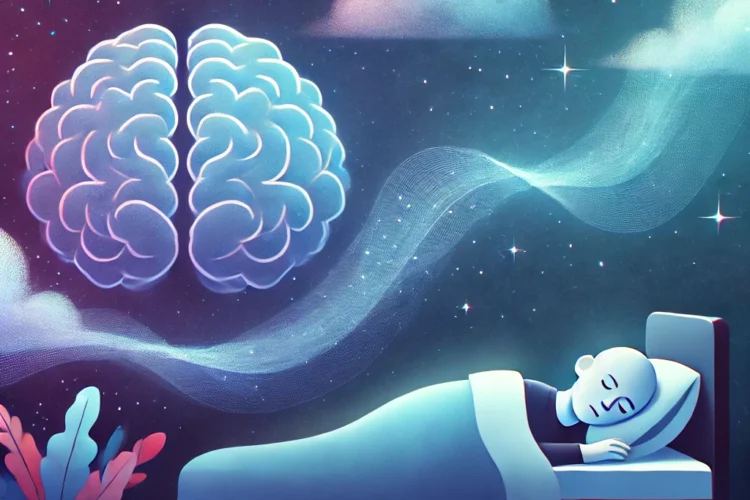By Senior Nee, A member of Udaipur Cycling Club
Ever wondered why we dream while sleeping? Let me explain! When you sleep, your brain becomes more active than during the day, but your body stays still. Your brain goes through different ‘phases’ known as ‘Phases of NREM’ (Non-Rapid Eye Movement), which help process memories and rest your body.
The Four Stages of Sleep
Sleep is divided into four main stages, three of which belong to NREM sleep, followed by the REM (Rapid Eye Movement) phase.
Stage 1: Light Sleep
When you first lie down, your body starts to relax, and you begin drifting off. This stage lasts about 10-12 minutes, and it’s easy to wake up during this time.
Stage 2: Deeper Relaxation
This phase lasts around 30 minutes. Your heart rate slows down, your body becomes completely still, and your brain begins processing information. Your brain moves data from the Hippocampus to the Frontal Lobe. This is when dreams start! Some memories are stored permanently, while others are erased if deemed unnecessary.
Stage 3: Deep Sleep and Memory Processing
For the next hour, your brain organizes and strengthens memories. This is also when your body repairs tissues and strengthens the immune system. It is the most rejuvenating phase of sleep.
Stage 4: REM Sleep – The Dreaming Phase
The final stage of sleep is REM sleep, where brain activity is at its peak, almost as active as when you are awake. This is when most vivid dreams occur, and your brain consolidates memories, emotions, and learning from the day.
Why Good Sleep Matters
Getting enough quality sleep is crucial for:
- Better memory and learning: Sleep helps store new information and improves focus.
- Emotional well-being: Lack of sleep can increase stress and anxiety.
- Physical health: Sleep aids muscle repair, hormone balance, and immune function.
Tips for Better Sleep
To reach deep sleep, avoid these before bedtime:
- Heavy Meals: Eating too much can disturb your sleep.
- Alcohol & Sleeping Pills: They mess with your sleep cycle.
- Screen Time: Avoid phones and gadgets at least 3 hours before bed. Blue light tricks your brain into thinking it’s still daytime.
- Caffeine Late at Night: Caffeine blocks sleep-inducing chemicals in the brain, keeping you awake.
Why Avoid Coffee Before Bed?
Drinking coffee late can keep you awake! When you feel sleepy, your brain releases Adenosine, a chemical that promotes sleep. Caffeine blocks its receptors, preventing you from feeling tired and making it harder to fall asleep.
Conclusion
Sleep is essential for your brain and body to function well. Understanding the sleep stages and avoiding bad habits can help you wake up refreshed. So, put your phone away, skip that late-night coffee, and give your brain the rest it deserves!

